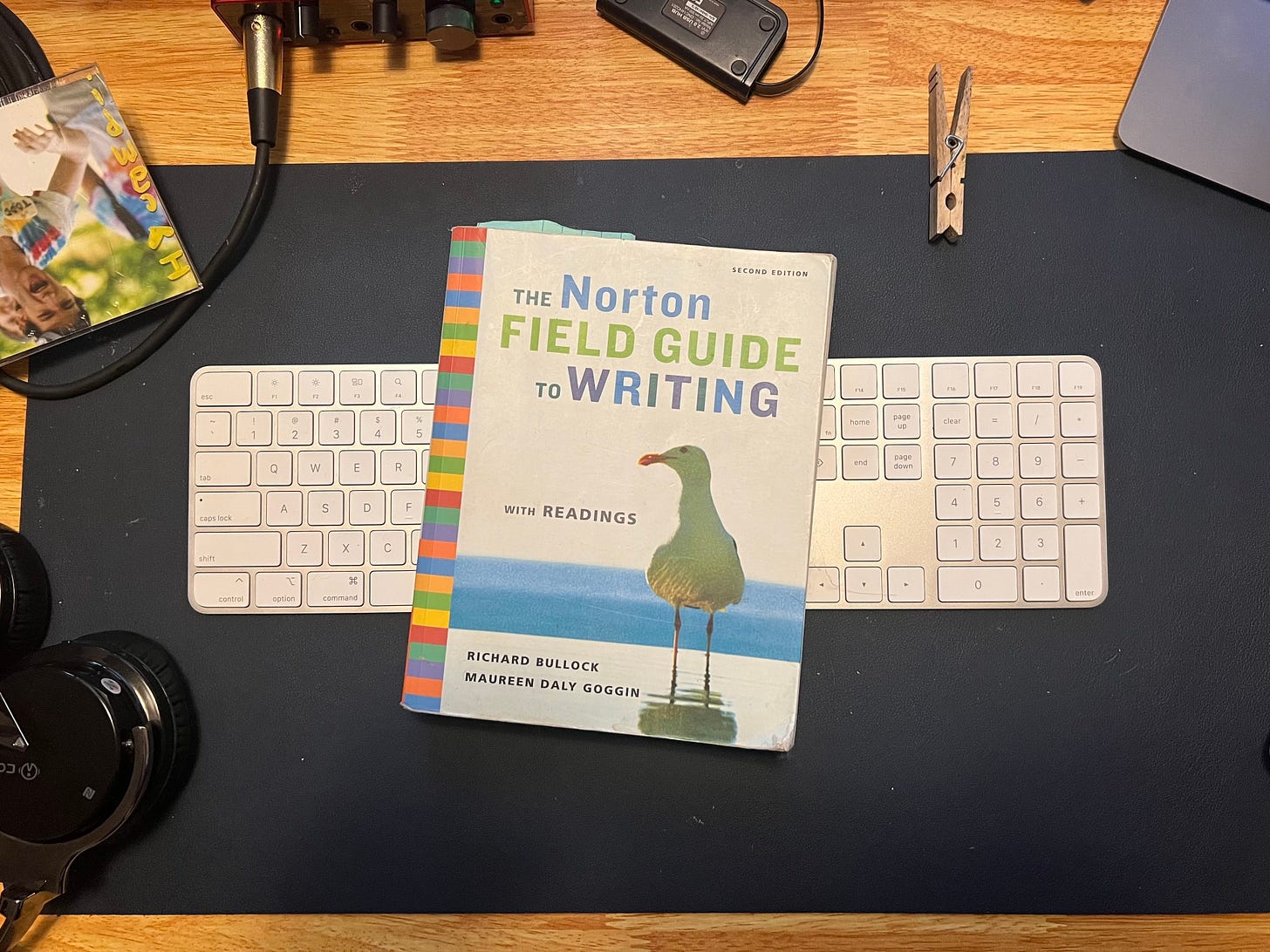I accidentally started a grammar battle on Twitter
Who wins the battle for proper verb use?
It didn’t start “innocently”, per se.
Grammarly gave me some advice that I found suspicious (and by suspicious I mean as wrong as pickle-flavored cotton candy.)
When I brought the issue to the public court of Twitter, chaos ensued.
After a weekend of swimming eyeball-deep through the replies, and after trying to determine objectively what exactly the right answer should be, and why it should be that way, I wound up feeling sorry for my enemy.
I felt sorry for Grammarly.
Grammar is one of those subjects that gets more difficult the longer you think about it. Long, complex sentences loop parts of speech under, over, and across each other. Try to label each word, and you end up with a sentence diagram that makes the Gordian knot look like a couple loose strands of thread.
So.
Let’s separate ourselves from the Twitterverse and take the sentence apart piece by piece, in true WMGW style: Not by consulting a style guide, but by slowly stepping through my thoughts one word at a time.
In short, this is an explanation of why I’m right and everyone else is wrong.
:)
Here’s the whole sentence.
A cliche is a group of words that has been used so many times that it no longer holds meaning for the reader.
Grammarly and the Twitter brigade fought over that word in bold: “has.” Grammarly suggested “have” was the correct verb.
Let’s work from the beginning of the sentence. I chose, and still choose, the word “has.”
You can review the following evidence and make your own decision.
A cliche…
Every sentence has a subject and a predicate. The subject of a sentence is a person, place, or thing. The predicate is an ACTION the subject takes or a DESCRIPTION of the subject.
So far, it looks like the subject of our sentence is “cliche.”
With me so far?
Let’s keep moving.
A cliche is a group…
We now have a subject and a predicate. This sentence could have ended here. A cliche IS a group. However, it’s unclear what sort of group it is. A group of what? Words? Rocks? Pigeons?
As the writer, I must now explain or describe this group.
How do I do that?
A cliche is a group of words…
No problems so far.
“Of” is a preposition, meaning it describes a relationship between “group” and “words.”
Again, I could have ended the sentence here.
However, I felt the need to extend our predicate.
A cliche is a group of words that…
Buckle up. We’re now entering crazy land.
“That” is a demonstrative pronoun. It refers to (or “demonstrates”) a specific noun in the sentence.
What could “that” be referring to in this case?
I’ll give you a minute.
.
.
.
Oh, I know what will help. I’ll split this sentence into two sentences, and I’ll swap out the demonstrative pronoun for a singular pronoun.
Here’s how our same sentence would read if you split it in two.
A cliche is a group of words. It (does something)…
Now do you see?
The singular pronoun “it” is referring to “cliche,” so the demonstrative pronoun “that” (from our original sentence) must also refer to the word “cliche.”
Shoutout to Sawyer Kuhl in the comments, who pointed out the error in the above^
The singular pronoun “it” is referring to “group,” so the demonstrative pronoun “that” (from our original sentence) must also refer to the word “group.”
Let’s return to our sentence. It’s time for you to make your final judgment.
A cliche is a group of words that has been…
Should the verb be “has” or “have?”
You know my conclusion. I’ll leave you to form your own.
Please feel free to fight in the comments about it.
Much love as always <3
-Todd B from Tennessee





You are right about the verb but wrong about the why. In your sentence, “that” (and “it” in your broken down version) refers to the singular word group, not cliche.
It’s a group that, not a cliche that .
A group HAS BEEN not have been so grammarly is, in fact, incorrect.
You're right, Grammarly is wrong. I'm not going into why you're right, but here's how Grammarly got it wrong. Grammarly is not a person sitting there reviewing your writing. Grammarly is an AI algorithm looking for certain things on which it has been trained. It's understandable that Grammarly chose the noun closest to the verb. It's wrong, but it's understandable. With more training, Grammarly may someday be able to discern that your phrase "group of words" is what owns the verb, rather than the single word "words," but that day is not today.